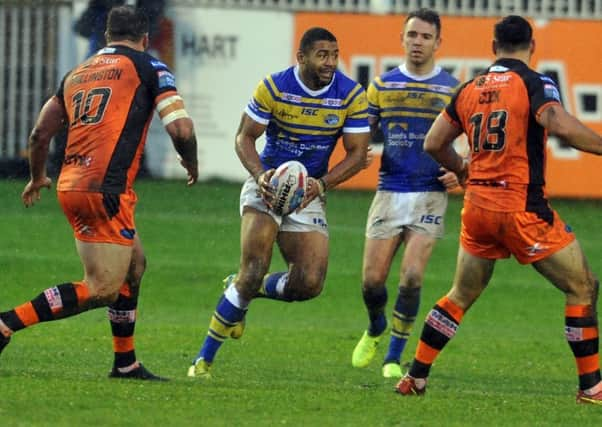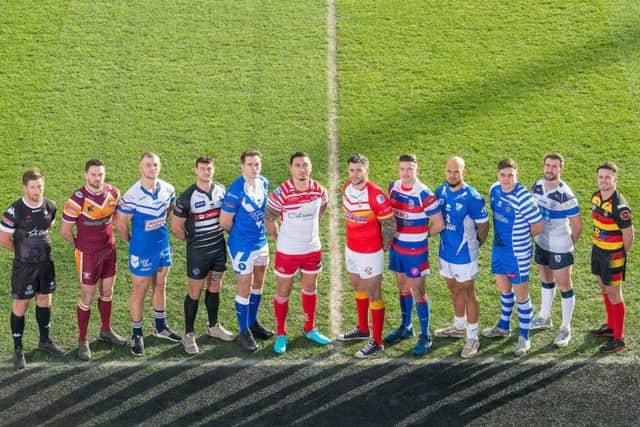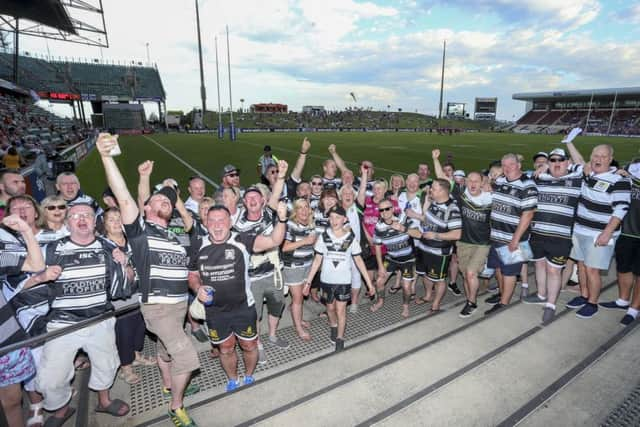Peter Smith: Turning a novelty into a habit is rugby league's long-term task


That is on top of a warm-up game last month. It is a big rivalry and often produces exciting matches, but there can be too much of a good thing.
Rugby league is, or the people who run the sport are, obsessed with derbies, but matters are beginning to move in the opposite direction.
Advertisement
Hide AdAdvertisement
Hide AdIn no way can, for example, Barrow Raiders against Toronto Wolfpack – a fixture which took place in the Betfred Championship last weekend – be described as a derby.


There’s every chance Toronto, despite being held to a draw in the Cumbrian mud, could be playing in Super League next year.
If that happens – and assuming Catalans Dragons don’t get relegated – there will be two overseas clubs in the elite competition and Toulouse Olympique also have ambitions in that direction. Should they achieve promotion and Super League stays at 12 clubs, a quarter of the competition would be from outside England.
Expansion is something rugby league has strived for since it began in 1895 and it is happening in the most unexpected way.
Advertisement
Hide AdAdvertisement
Hide AdDomestically, rugby league still struggles to break out of its heartlands in the counties of Yorkshire, Lancashire and Cumbria.


There are teams based in Wales, the midlands, the south and London, but all struggle to attract crowds and though some of them are beginning to produce very good players, all the English Betfred Super League clubs are based in the north.
At the end of last season Oxford and Gloucester announced a merger which will see them rejoin League One as Bristol next year. A World Cup game in that city proved a success, but that was five years ago and there’s been nothing significant done since then – for example an international or Super League game played in Bristol – to build on that.
Clubs may not want to take a game to Bristol, but they are keen to play in Australia. Today, three of the 12 Super League teams are Down Under. Hull lost to Wigan last week in the first Super League game played in the southern hemisphere and on Saturday they will each face NRL opposition in a Sydney double-header.
Advertisement
Hide AdAdvertisement
Hide AdRhinos, of course, are in Victoria to take on Melbourne Storm in the World Club Challenge tomorrow. The attraction of Australia is obvious; it is – or at least Brisbane and Sydney are – a huge rugby league market and there are financial benefits from being able to tap into that.


But Melbourne is a city with familiar problems as far as rugby league is concerned. Now set to celebrate 20 years as an NRL club, Storm are one of the game’s powerhouses, but success on the field has not generated the level of local support or interest it should have.
Melbourne is an Aussie Rules (AFL) city and the Grand Final played here sells out the 100,000-capacity Melbourne Cricket Ground every September.
AFL dominates the media and public attention and one Storm insider summed it up by pointing out “the people here who know about us, love us, but those who don’t aren’t interested”.
Advertisement
Hide AdAdvertisement
Hide AdStorm have proved clubs in areas new to top-level rugby league can survive and thrive, but that doesn’t automatically mean the local population will take them to their hearts.


The year Storm entered the NRL, Sheffield Eagles won the Challenge Cup. That should have been the springboard for rugby league to grow in South Yorkshire, but it didn’t happen.
So while it is good that Toronto have made a positive impact since joining the European game last year and other big cities – including New York – are keen to join the party, that doesn’t mean rugby league is on its way to the wider acceptance it has always craved.
However, the heartlands can only take the game so far and new opposition breathes fresh life into fans and players. Facing Australian opposition is a new challenge and the exotic aspect has boosted crowds at clubs Toronto visited last year. Turning a novelty into a habit is the real long-term task.